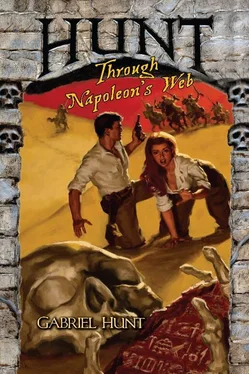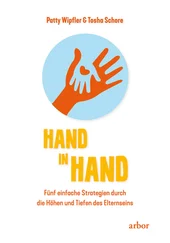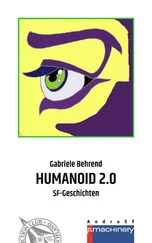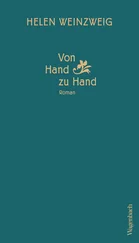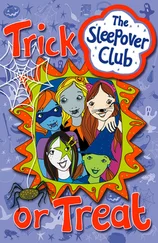“Is it dangerous for you to come into Marrakesh?”
“Only if I am recognized by a policeman.” He laughed. “Don’t worry. I visit the city all the time. I just have to be careful.”
Sammi couldn’t see how driving a car this conspicuous and dressing in an outfit that was the car’s sartorial equivalent counted as being careful. But he apparently knew what he was doing. She didn’t see any police cars in the rearview mirror.
Perhaps, she thought, he paid them off, splitting with them the bounty from the Hunt Foundation.
“We will go to the Djemaa el Fna,” Arif said, “and together we shall visit each carpet store. Of course, searching every carpet store in Marrakesh is a bit like searching every boîte and café in your country. A daunting task, eh? But perhaps we will be lucky and find the right one before our friend’s siblings come to a bad end.”
And he smiled at her, in a way that was clearly meant to be reassuring. Instead, it left her with the distinct sense that this man had something up his handsomely tailored sleeve.
But she needed his help.
“Sounds like a plan,” Sammi said,
The truck took the better part of a half hour to get out of Marrakesh. As the road became rougher, the trailer rattled and bounced with increasing vigor, troubling the goats into louder and more nearly continuous bleating.
“How much longer do you think?” Lucy asked, keeping her voice low.
Gabriel looked out between the slats. “We’re in the desert,” he reported. “Nothing for miles. We’re not stopping anytime soon.”
“What do you say we get out,” Lucy said. “Just kick open the doors and jump. Every goat for himself.”
“Not here,” Gabriel said. They were in the middle of nowhere, with no landmarks he could recognize. Not a place you wanted to wander on foot.
“Remember the food they gave me,” Lucy said, “that rice and hummus?” Gabriel nodded. “It was terrible,” she said. “Practically inedible. But right about now, I wish I’d eaten more of it.”
“There’re some carrots over there.” Gabriel gestured to a trampled pile in one corner. One of the goats was nosing at it.
“Thanks a whole lot.”
“Salad,” Gabriel said. “I don’t think they’ll mind sharing.”
“Want to bet?”
She settled back into the straw and let her eyes slide shut.
An hour later, they felt the truck turn onto a pitted dirt road. The ride became even bumpier. Gabriel peered outside. After several minutes of bone-jarring bounces, the worst of which threatened to overturn the trailer, Gabriel said, “I see something. Looks like a farm.”
The truck pulled to a stop on a barren driveway next to a farmhouse whose walls and roof were made of lashed-together planks of wood with whitish mortar sealing the cracks in between. An angled roof cast a bit of shadow, just enough to shade one side of the trailer. Chickens wandered freely across the ground, clucking and bobbing their heads. More goats were penned in a wooden corral. A woman wearing a niqab stood beside the corral, tossing feed to the birds. She greeted the driver in a language Gabriel didn’t understand—Berber?—when the man got out of the truck.
“I don’t suppose they’ve got a shower,” Lucy muttered.
The driver and the woman had a brief conversation and then the driver went inside the house.
Lucy took the opportunity to rise to a crouch and press her way to the back of the trailer, shoving goats aside. She raised the metal bar holding the doors closed, swung them to either side and dropped to the ground. Gabriel followed close behind.
The woman let go of her canvas sack of feed and called for the driver in a voice that rang with fear. The driver came running out of the house. He grabbed a long-handled hoe that was leaning against the doorframe.
“It’s all right!” Gabriel said, first in English, then in French, his palms extended outward, open and empty. “We’re friendly.”
Lucy said something as well. Gabriel couldn’t understand a word of it, but the driver’s stance relaxed a bit, and he answered her warily in the same tongue.
“When did you learn Berber?” Gabriel whispered.
“Had some time on my hands a couple of years back,” Lucy said. “My cellmate spoke it.”
“Your cellmate?” Gabriel said, but she was walking away from him, toward the farmer and what he could only guess was the man’s wife.
“I’ve told him we’re not goat thieves,” she called back to Gabriel, in between exchanges in the desert language. “That we’re escaping from a gang of Egyptians who were trying to kill us. They don’t like Egyptians much around here.”
The woman spoke rapidly to the man, who hurried past Gabriel and grabbed hold of a goat that had jumped down from the trailer. He hefted it back up and inside, then shoved the doors closed.
The woman beckoned for them to come inside the house.
“I told her we wanted to get washed, maybe have some food,” Lucy said. “I said we didn’t have much money but that you’d give them what you had.”
“Of course.” Gabriel took Chigaru’s meager store of dirham from his pocket and pressed the crumpled bills into the man’s hands. “If you can get their names, when we get out of this I’ll tell Michael to send them—”
Lucy shook her head. “I told you, I won’t touch that money.”
“You wouldn’t be touching it, they would—” But Gabriel stopped when he saw the look on her face. It was a look he remembered well from when she was a girl, a look that said she wouldn’t be budged.
The woman led them into the farmhouse while her husband unloaded the goats and herded them into the corral. She showed them to a primitive but functional shower, with a pair of tin buckets suspended on a rod and a rope to tip the water out through holes punched in the buckets’ sides. Gabriel saw Lucy’s eyes light up and invited her to use it first. He walked off a bit to get the lay of the land and stretch his tight muscles. By the time he returned, she was bundled up in a coarse towel, her hair dripping and her clothes laid out to dry on a rock in the sun.
“All yours,” she said.
He began unbuttoning his shirt. As he pulled it off, he saw Lucy staring. He looked down. “What?”
She came forward, traced a finger along one of the scars on his arm. It had come from a sword; there was a matching scar on the opposite side where the tip of the blade had come out. “Got that one in Giza,” he said softly. “Inside the Great Sphinx.” She moved on to a puckered knot of flesh on his side, from a bullet wound that had never healed properly. “Botswana,” he said in answer to her unspoken question. She traced a thin line running crookedly from his navel to his hip. “Ninety-third Street,” he said, “and Central Park West.”
She patted him gently on his side. “Take your shower,” she said. “I’ll get us some food.”
They sat in the modest farmhouse at a table that appeared to be made from a single cross-section cut from a huge tree, sharing a platter of dense Moroccan bread and bowls of thick vegetable soup. Lucy scarfed down three bowls.
“They don’t have a telephone,” she said between spoonfuls. “But they can drive us to the airport.”
Gabriel dug into his pocket and took out the piece of paper onto which he’d copied the Arabic word he had seen underlined on the map in Amun’s office. “Can you ask them if they know what this means?”
Lucy passed it to the man and spoke to him. The man nodded, uttered a few words. “Darif says it’s Arabic. It means ‘the web.’ Why? Is it important?”
Gabriel took the slip of paper back. “I don’t know,” he said. “Just trying to figure out what we’re dealing with.”
Читать дальше
